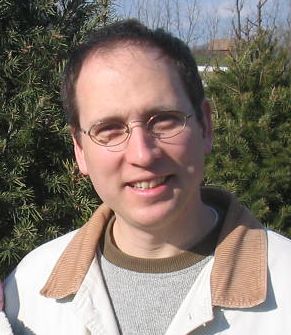The wisdom of crowds
I've been thinking that I need to get my hands on James Surowiecki's The Wisdom of Crowds, because I've been hearing a lot about it, and it sounds like it's up my alley. Better add it to my Froogle wishlist.
The premise behind The Wisdom of Crowds is that large groups of people can be "smarter" than a few elite experts -- better at solving problems, fostering innovation, coming to wise decisions, even predicting the future.
Over the past couple of months, I've run into a few interesting items that tend to fall into this category.
The first is the ageproject, a web site where you can post a photograph of yourself, and the random masses will take a stab at how old you look. Earlier this year, I posted a picture of myself that I think is a fair representation of my appearance. (It also happens to be the profile photo you see here on Inside Market Research.) After about 80 people have submitted their guess of my age in that photo (I was 36 at the time), they have come to the conclusion (as an average) that I looked thirty-six years old! I don't know why that amazes me, but it does.
Another interesting site where random users contribute their perceptions to create an "average" whole is the Mind World Map. Here, the user visits the site and sees what used to be a random assortment of green and blue pixels. But the Internet community is molding it, one pixel at a time, into what they think the world map looks like. Pretty neat.
The final item that I thought fell into this category actually happened at ICR, when the results of a survey that we conducted among American adults were presented in Japan to coincide with the 60th anniversary of the dropping of the atomic bombs on Hiroshima and Nagasaki. One of the survey questions asked household respondents to identify the year in which the atomic bombs were dropped during World War Two. The range of answers was a bit frightening to me (a student of History), but sure enough, the mean, median, and mode were correctly on 1945. Same goes for the question about which month of the year the bombs were dropped, correctly centering on August, even though every month of the year received at least some mentions.
I'm not completely convinced that, given a choice between 10 experts in various fields and a room full of 200 average Joes, I'd want the latter giving me important advice. But, the concept is interesting. Anyone with similar anecdotes about either the book or the concept of "the wisdom of crowds"?
Tags: aging, James Surowiecki, maps, nuclear war, Surowiecki, wisdom of crowds




